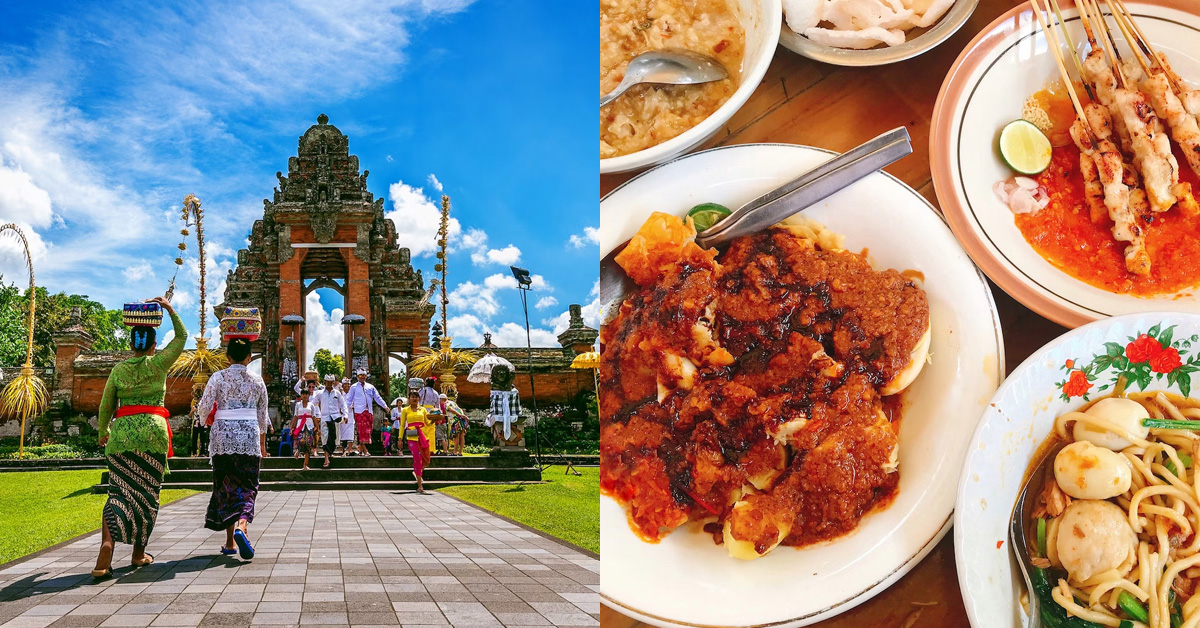Indonesian cuisine is a diverse and flavorful blend of spices, herbs, and ingredients that reflect the country’s rich cultural heritage and history. With over 17,000 islands, Indonesia is home to a wide variety of regional cuisines, each with its own unique flavors and cooking techniques.
Indonesian food is known for its bold and complex flavors, with dishes that range from spicy and savory to sweet and tangy. From the famous nasi goreng (fried rice) to the popular satay (grilled meat skewers), Indonesian cuisine is a must-try for any food lover.
Indonesian cuisine
Is Indonesian food halal?
Most Indonesian food is halal, as the majority of the population in Indonesia is Muslim and follows halal dietary laws.
However, there are some dishes that may contain non-halal ingredients such as pork or alcohol, so it is important to check the ingredients before consuming.
What kind of food do Indonesian eat?
Indonesian cuisine is diverse and varies from region to region. Some popular dishes include:
- Nasi Goreng: Fried rice with vegetables, meat, and spices.
- Satay: Grilled meat skewers served with peanut sauce.
- Gado-gado: A salad made with boiled vegetables, tofu, and peanut sauce.
- Soto: A soup made with chicken or beef, vegetables, and spices.
- Rendang: A spicy meat dish made with beef or chicken.
- Nasi Padang: A dish consisting of steamed rice served with various side dishes such as curries, vegetables, and meat.
- Bakso: Meatballs served in a soup or with noodles.
- Sambal: A spicy sauce made with chili peppers, garlic, and other ingredients.
- Tempeh: A fermented soybean cake often used as a meat substitute.
- Martabak: A savory or sweet stuffed pancake.
How can you tell if the food is halal in Indonesia?
In Indonesia, halal food is usually labeled with a halal certification logo issued by the Indonesian Council of Ulama (Majelis Ulama Indonesia or MUI). This logo can be found on the packaging of food products or displayed in restaurants and food stalls.
Some restaurants and food stalls may display a sign indicating that their food is halal. It is also common for Muslim consumers to ask the seller or restaurant staff if the food is halal before purchasing or ordering.
Is it hard to find halal food in Indonesia?
Indonesia is the world’s largest Muslim-majority country, and halal food is widely available in most parts of the country. Many restaurants and food stalls in Indonesia serve halal food, and many halal-certified food products are available in supermarkets and convenience stores.
However, finding halal food options may be more challenging in remote areas or small towns.
Is Indonesian food healthy?
Indonesian food can be healthy if it is prepared with fresh ingredients and cooked in a healthy way. Indonesian cuisine typically includes a variety of vegetables, herbs, and spices, which can provide many health benefits.
However, some Indonesian dishes can be high in fat, salt, and sugar, so it is important to choose wisely and eat in moderation.
What is Indonesian food similar to?
Indonesian food is similar to other Southeast Asian cuisines such as Thai, Malaysian, and Vietnamese, as well as Indian and Chinese cuisine.
It often features a combination of sweet, sour, and spicy flavors and uses ingredients such as coconut milk, lemongrass, ginger, and chili peppers.
Steps to find halal food in Indonesia
Here are some tips in finding halal food in Indonesia:
- Look for halal certification: The easiest way to find halal food in Indonesia is to look for halal certification. The Indonesian Council of Ulama (MUI) is the organization responsible for issuing halal certification in Indonesia. Look for the MUI halal logo on food packaging or displayed in restaurants.
- Check online halal food directories: There are several online directories that list halal restaurants and food products in Indonesia. Some popular ones include Zomato, HalalTrip, and Halal Navi.
- Ask locals: If you are unsure about the halal status of a particular food item or restaurant, ask locals for recommendations. Indonesians are generally friendly and helpful, and they will be happy to assist you in finding halal food.
- Visit halal markets: Halal markets are a great place to find halal food in Indonesia. These markets sell a variety of halal food products, including meat, poultry, fish, and spices.
- Avoid non-halal food: To ensure that you are eating halal food, it is important to avoid non-halal food items such as pork, alcohol, and non-halal meat.
- Check the ingredients: Always check the ingredients of packaged food items to ensure that they are halal. Look for ingredients such as gelatin, which may be derived from non-halal sources.
- Be cautious when dining out: When dining out, be cautious and ask the restaurant staff about the halal status of the food. If you are unsure, it is better to err on the side of caution and avoid the food item.

